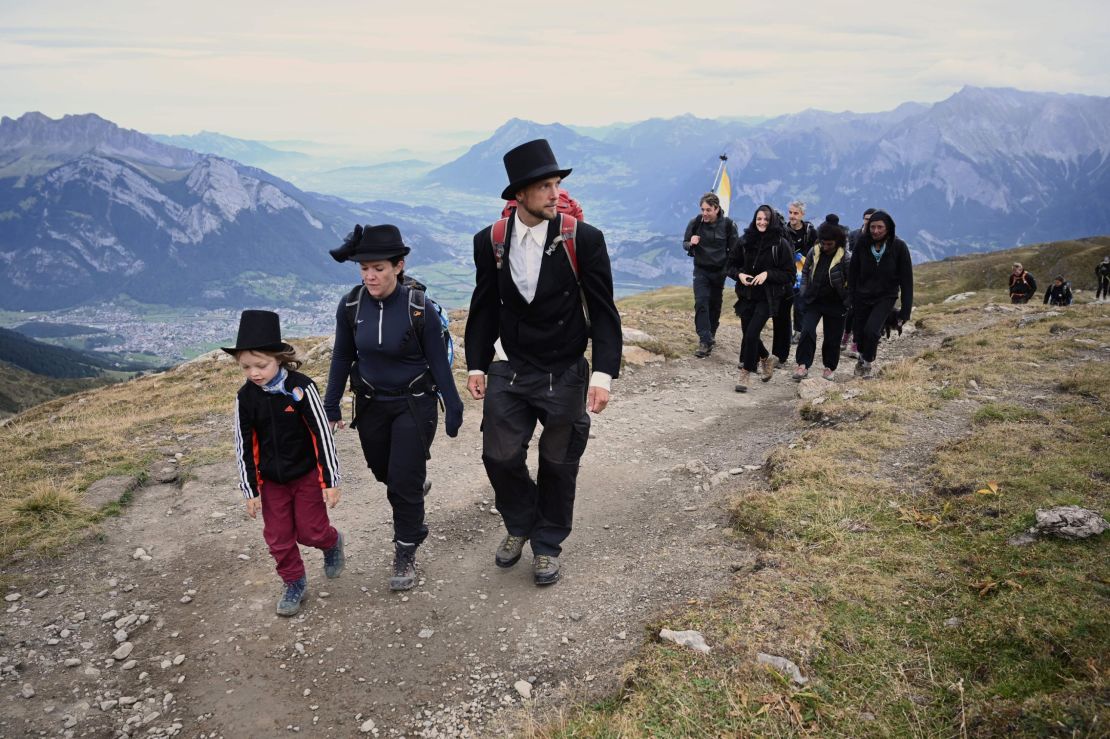Hundreds of people held a funeral and paid respects to a Swiss glacier that is disappearing as temperatures climb.
Pizol glacier in the Glarus Alps, eastern Switzerland, stands at an altitude of about 2,700 meters, and has lost 80-90% of its volume since 2006, leaving behind 26,000 square meters of ice – less than four football fields – said Matthias Huss, a glacier specialist at ETH Zurich university.
The glacier, which has been monitored since 1893, will be the first to be taken off the Swiss glacier surveillance network, according to Huss.
Around 250 people gathered Sunday to hike up to the glacier, where a local priest gave a speech to commemorate the retreating ice, said Alessandra Degiacomi, coordinator of the Swiss Association for Climate Protection and organizer of the funeral march.

“Pizol glacier has disappeared. There will be some snow left, but the glacier is no more,” Huss told CNN.
“There are several small pieces of ice lying around, but these pieces are increasingly being covered by rock debris from the mountain. But given what is left of it, we will no longer term it a glacier in scientific terms,” Huss added.
“80% of the glaciers in Switzerland are more or less the same size as Pizol,” Degiacomi told CNN.
“If Pizol goes, this is a warning sign. This is what is going to happen if we don’t change something about our behavior,” she added.
Degiacomi told CNN that the Swiss Association for Climate Protection had obtained 120,000 signatures – above the 100,000 required – needed to launch a popular initiative demanding that Switzerland reduce its greenhouse gas emissions to zero by 2050.
“We want to have a CO2 neutral Switzerland from 2050,” Degiacomi told CNN. “We want to decarbonize the country.”
In July, scientists memorialized the demise of Okj?kull, the first Icelandic glacier lost to climate change, with a plaque.
A study released in June warned that Himalayan glaciers are melting at a dramatic rate – losing almost half a meter of ice each year since the start of this century due to global warming.
CNN’s Isabelle Gerretsen and Allen Kim contributed to this report.

